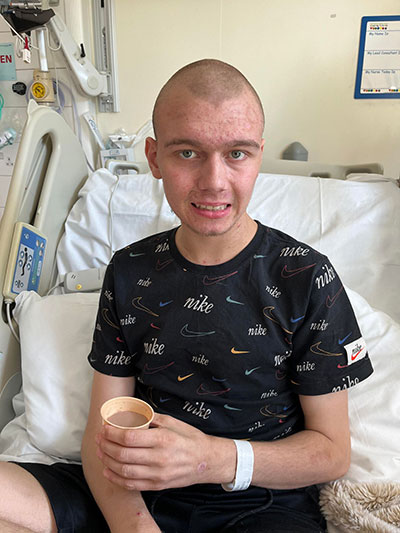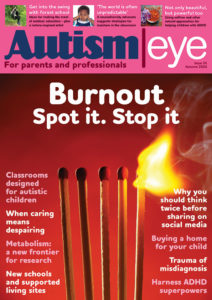A mother who won the right for her autistic son to be given a kidney transplant says children and young people are being “badly failed”.
Ami McLennan says 17-year-old son William Verden is “doing great” after the transplant.

William Verden more than three weeks after his kidney transplant
McLennan fought medics who said giving William a transplant was futile.
Had she listened to the medics her son would have “died for nothing”, she added.
‘Unnecessary battle for health equality’
McLennan, from Lancaster, said she “100 per cent” feels “there’s an unnecessary battle for health equality for children/young adults with additional needs”.
This “shouldn’t be allowed to be the case”.
Those with special needs should “receive the same care as anyone else”, she added.
William, who also has attention deficit hyperactivity disorder (ADHD) and a learning disability, was kept alive by dialysis at Manchester Children’s Hospital.
Transplant offered ‘50 per cent chance’
Medics believed a transplant offered a 50 per cent chance of success.
But they maintained it was almost 100 per cent certain that the disease would come back.
At the Court of Protection, Mrs Justice Arbuthnot ruled a transplant was in William’s best interests.
‘Everyone deserves the same rights’
McLennan added: “Everyone deserves the same rights and to be treated alike, regardless of disability.”
Mum Paula McGowan led a campaign for mandatory autism training for all NHS staff.
Her son Oliver, 18, died after he suffered an allergic reaction to antipsychotics. His family say medics should never have given them to him.
McGowan alleged the medics who treated him displayed “subconscious bias, discrimination, diagnostic overshadowing”.
She also said that “making catastrophic decisions based upon ignorance around neurodiversity” and “glaring inequality” were all key factors in William’s case.
People with learning disabilities and autism die an average of 15 to 20 years earlier than the general population, research shows.
A Manchester University NHS Foundation Trust spokesperson said its teams had previously “supported children with autism, ADHD and learning disabilities through transplants”. It said it rejected “any allegations of discrimination”.
Related:
Published: 15 September 2022
















